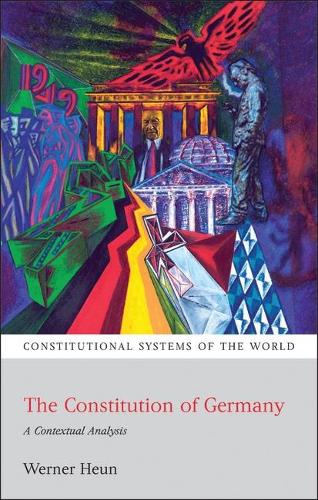
The Constitution of Germany: A Contextual Analysis
(Paperback)
Publishing Details
The Constitution of Germany: A Contextual Analysis
By (Author) Werner Heun
Bloomsbury Publishing PLC
Hart Publishing
30th November 2010
United Kingdom
Classifications
Tertiary Education
Non Fiction
342.4302
Physical Properties
Paperback
276
Width 138mm, Height 216mm, Spine 14mm
358g
Description
The German Basic Law, enacted in 1949 after total defeat and the experience of totalitarian barbarism, has become a model for constitutions around the world and a prominent example of modern constitutionalism. It features five fundamental principles - democracy, rule of law/Rechtsstaat, the social state, republican government and federalism each expressly guaranteed and protected against constitutional amendment. As such the German Basic Law is a prime example of a cooperative and predominantly executive federalism characterised by a high degree of unitarianism and equality of its member states. The institutional structure, featuring the principle of the separation of powers, is a parliamentary system of government, in which the Chancellor and the political parties play leading roles. The Bundestag remains a powerful Parliament, while the Bundesrat and the Prime Ministers of the Lnder act as an important counterweight. The Constitutional Court, as interpreter of the Constitution and possessor of a broad range of competences, occupies an especially important position, acting as arbiter between the different Federal institutions as well as between the Federation and the Lnder. In the field of fundamental rights the Court has achieved far-reaching constitutionalisation and juridification of the whole political system, while at the same time creating a strong and consistent system of individual freedom and the liberalisation of society.
Reviews
Overall, The Constitution of Germany is well researched and provides the reader with a wealth of information about the Basic Law. -- Yehonatan Cohen * Political Studies Review Volume 12, Issue 3, September 2014 *
Author Bio
Werner Heun is Professor at the Law Faculty of the University of Gttingen and Director of the Institute for General Theory of State and Political Sciences.
